ECC Project to Support Refugee Communities
The Church of Christ in Congo (ECC) is the ecumenical Christian organization that brings under one umbrella more than 95 Congolese Protestant denominations, including the Community of Disciples of Christ in the Congo (CDCC). Global Ministries has been in partnership with the Church of Christ in Congo since its inception. Core values of the ECC are reconciliation, justice, peace, struggle against corruption, and respect for human life. They encourage using power for serving others instead of a privilege reserved for self-interest.
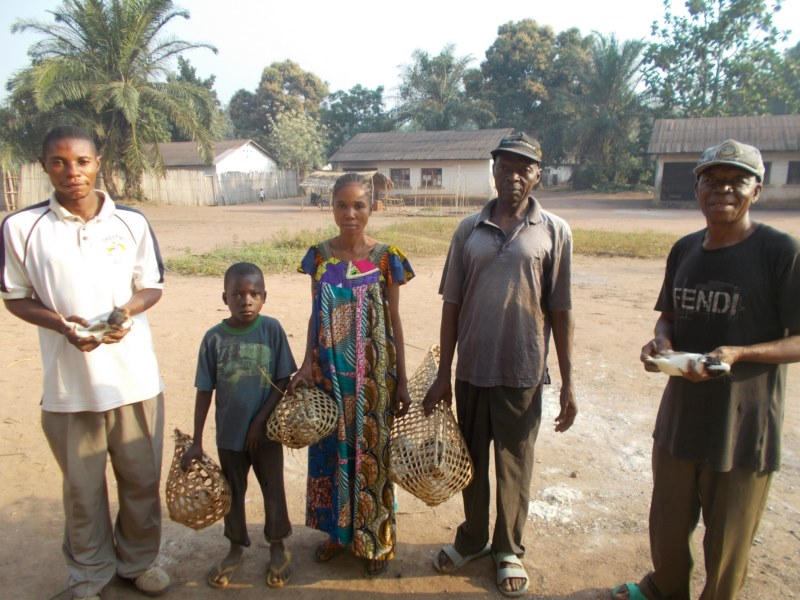 The Province of North Ubangi shares its border with the Republic of Central Africa. For decades, refugees, primarily from the Republic of Central Africa, have come to the area of North Ubangi fleeing the different conflicts. The Republic of Central Africa has been marked by unrest and civil war for decades, and much like the Democratic Republic of Congo, it is very rich in minerals and natural resources. Different rebel militias control parts of the country and the electoral process has not stopped the fighting.
The Province of North Ubangi shares its border with the Republic of Central Africa. For decades, refugees, primarily from the Republic of Central Africa, have come to the area of North Ubangi fleeing the different conflicts. The Republic of Central Africa has been marked by unrest and civil war for decades, and much like the Democratic Republic of Congo, it is very rich in minerals and natural resources. Different rebel militias control parts of the country and the electoral process has not stopped the fighting.
There are more than 90,000 refugees in the region, and in January 2021, approximately 25,000 individuals crossed the Bangui River from the Republic of Central Africa to the North Ubangi province to find refuge. The United Nations High Commissioner for Refugees (UNCHR) is present and intervening in the region. They have set up refugee camps in North Ubangi. Local churches are involved in working with refugee communities as well, as there are many informal refugee communities outside of UNCHR programs.
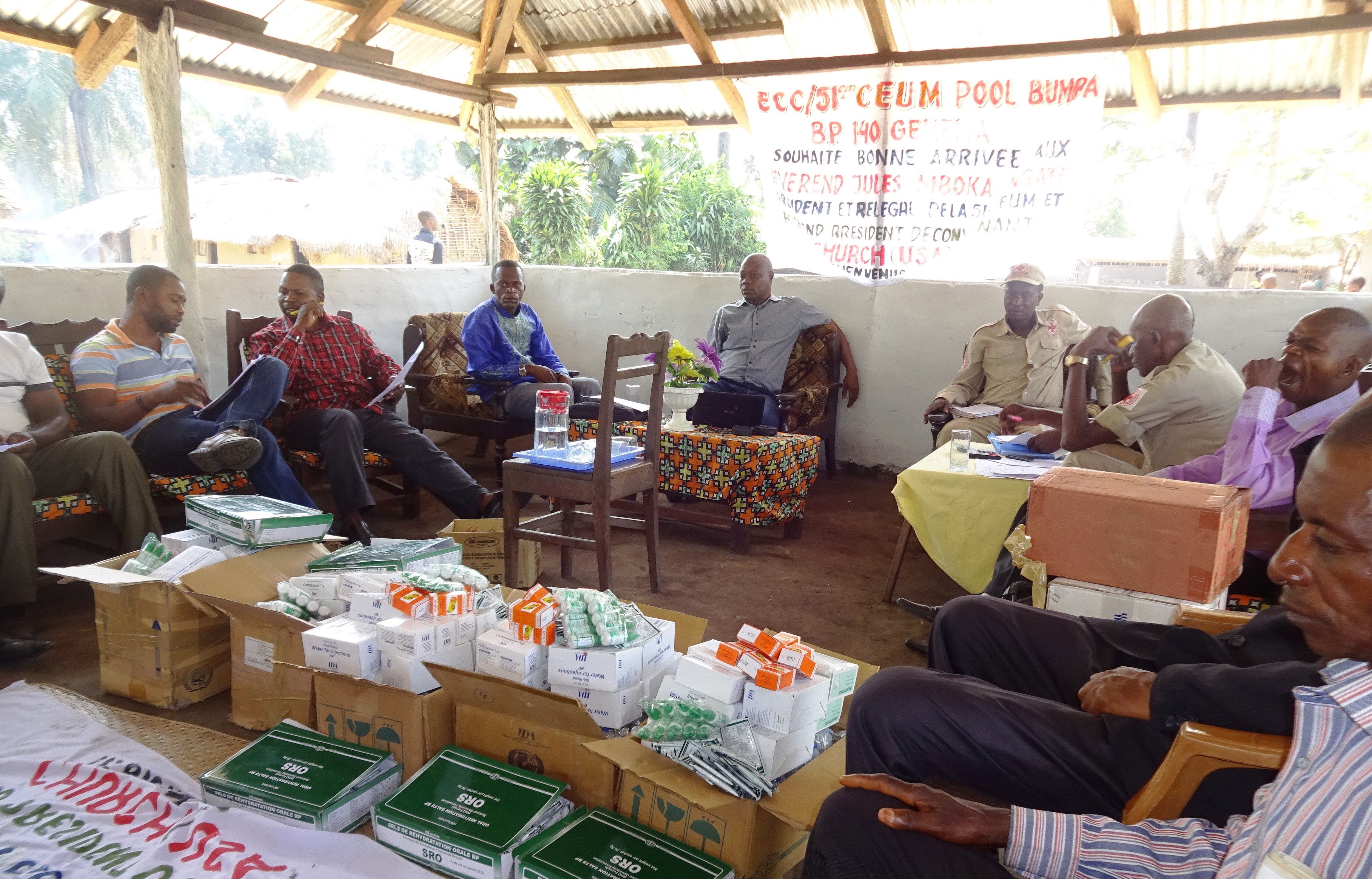 The Church of Christ in the Congo works with refugee communities through the ECC Department of Protestant Service of Development and Diaconia, and in coordination with local ECC-member churches. Pastor Bofio is a pastor of one of the most active local congregations in the project, and shares: Refugees near the border have little means to survive. Basically, they are homeless and the UNHCR is not able to provide shelters and toilets for all arriving in the region.
The Church of Christ in the Congo works with refugee communities through the ECC Department of Protestant Service of Development and Diaconia, and in coordination with local ECC-member churches. Pastor Bofio is a pastor of one of the most active local congregations in the project, and shares: Refugees near the border have little means to survive. Basically, they are homeless and the UNHCR is not able to provide shelters and toilets for all arriving in the region.
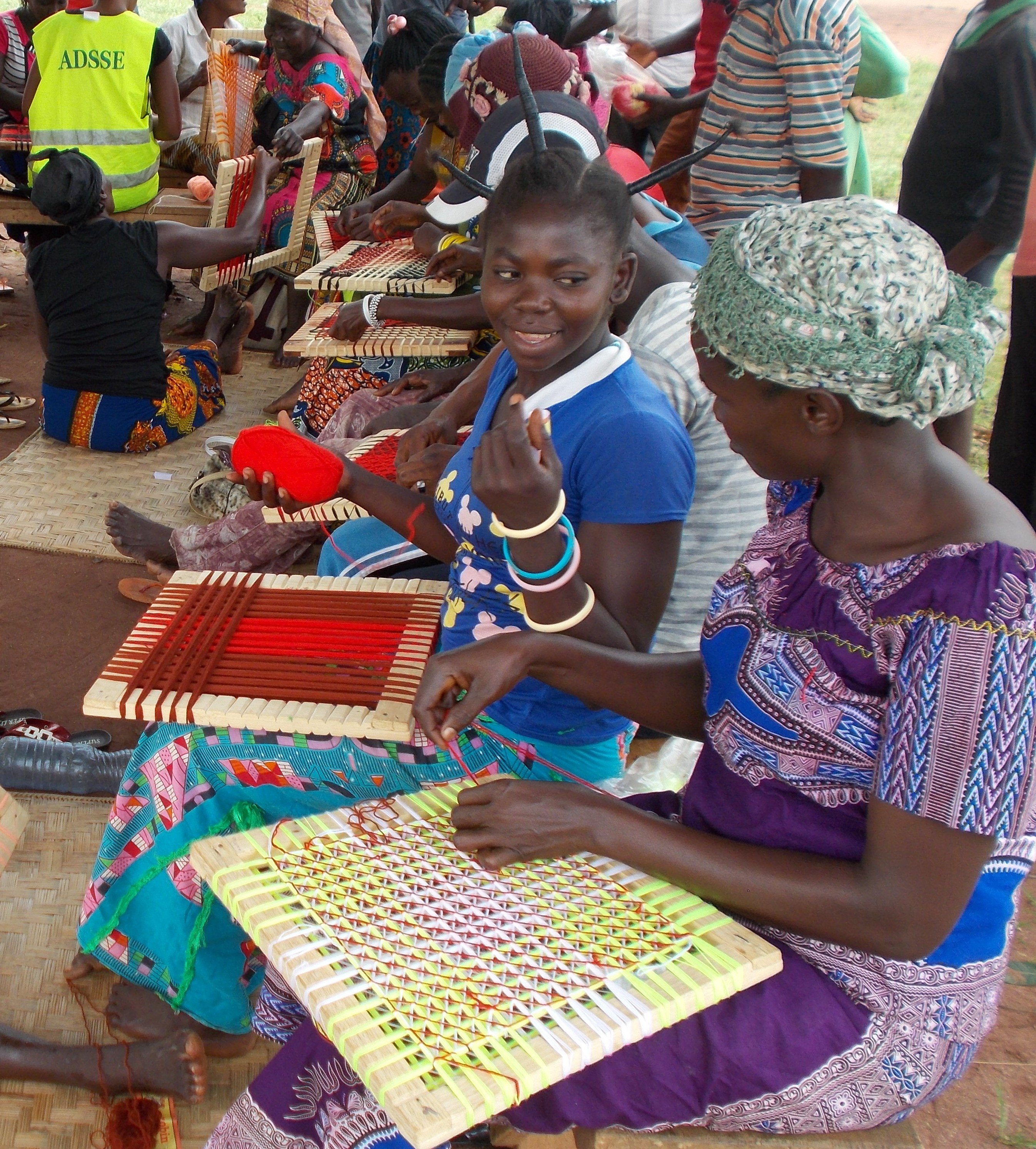 The commitment of the local churches and the ECC is to provide families, who have fled violence, with long-term assistance. The ECC has provided sports and activities for adolescents to help in their personal development, and the ECC is building new shelters and toilets. Additionally, they work with adults to provide income-generating activities for their self-care, including the production and sale of soap.
The commitment of the local churches and the ECC is to provide families, who have fled violence, with long-term assistance. The ECC has provided sports and activities for adolescents to help in their personal development, and the ECC is building new shelters and toilets. Additionally, they work with adults to provide income-generating activities for their self-care, including the production and sale of soap.
The primary project for income-generation activities, however, is the agriculture project. Families help in the planting, cultivating, and harvesting of vegetables, and the farms provide nutritious foods and an income for families with children.
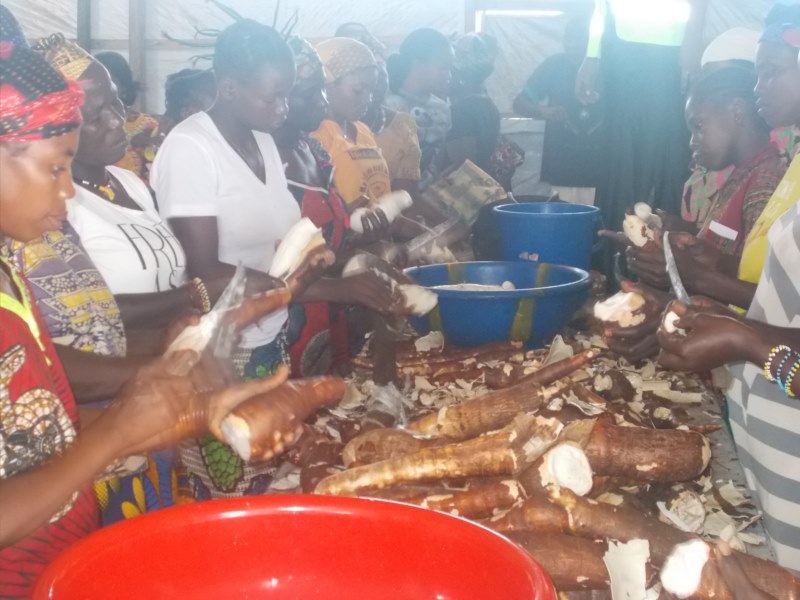 The ECC is raising funds to build more shelters for 4,000 refugees and to construct toilets for better living conditions. Additionally, the ECC is raising funds for fishing equipment, vegetable seeds, tools, and medical supplies. Global Ministries welcomes gifts for the Church of Christ in Congo (ECC) project to support refugee communities.
The ECC is raising funds to build more shelters for 4,000 refugees and to construct toilets for better living conditions. Additionally, the ECC is raising funds for fishing equipment, vegetable seeds, tools, and medical supplies. Global Ministries welcomes gifts for the Church of Christ in Congo (ECC) project to support refugee communities.
Update: June 2023
The Democratic Republic of Congo is experiencing the largest internal displacement crisis in Africa with 5.8 million internally displaced, mostly in the eastern regions of the country. It hosts more than one million refugees from neighboring countries as well. The World Food Program and the Food and Agriculture Organization of the United Nations have warned of the food crisis affecting a quarter of the DRC’s population, and one in four children is considered an orphan or vulnerable child in the DRC according to UNICEF.
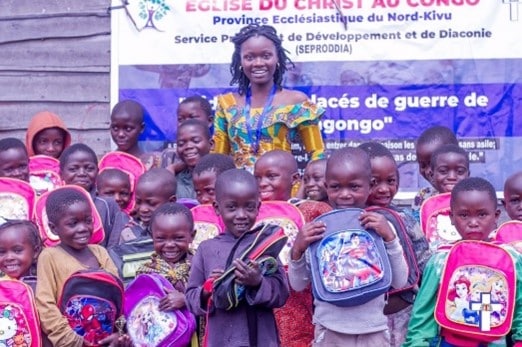
The Protestant Service for Development and Diakonia (SEPPRODIA) unit of the Church of Christ in Congo (ECC) works with refugees in two areas: the North Kivu and North Ubangi regions.
North Kivu
North Kivu has received the largest number of internal refugees fleeing conflict from rebel groups, with approximately 2.3 million displaced in the region. In the refugee communities, SEPPRODIA, with the assistance of pastors and local volunteers, has been working to provide food, drinking water, and non-food essentials including tarps, blankets, supplies for cooking, clothing, school supplies for children, buckets for washing, and medical services.
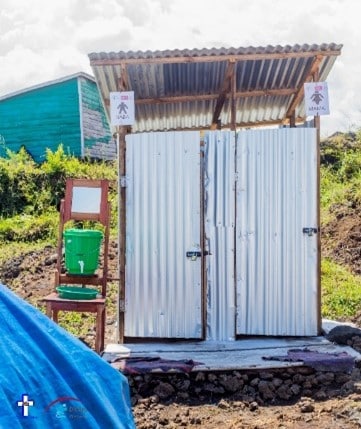
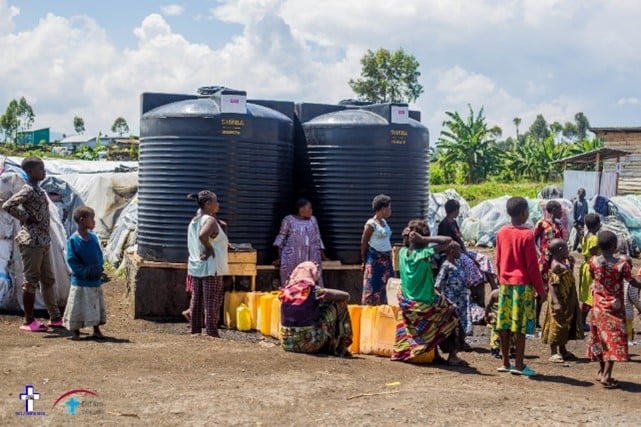
Additionally, SEPPRODIA recently installed toilets and water basins in the Lushangala camp of the North Kivu region for more sustainable sources of water and hygiene. Current priorities for the refugee ministries of SEPPRODIA in the North Kivu region include continued food and hygiene essentials, water, and medical services.
North Ubangi
The province of North Ubangi shares a border with the Republic of Central Africa. For decades, and especially since the civil war starting in 2004, refugees have fled from the Republic of Central Africa to the North Ubangi province of the Democratic Republic of Congo. Approximately 90,000 refugees are located in this region. SEPPRODIA has been working to support the development of emergency shelters and toilets, as well as the development of agricultural projects. Through the agricultural projects, more than 15 tons of cassava, a staple food, has been produced in the last year. Some of this can be sold for a profit to support refugees, primarily women, who are working on the project.
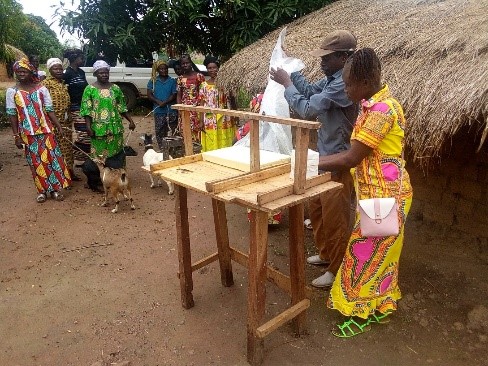
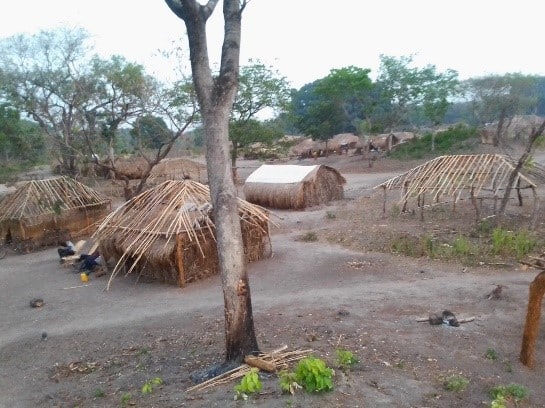
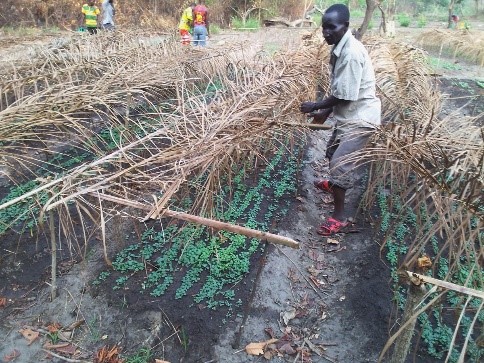
Current priorities for the refugee ministries of SEPPRODIA in the North Ubangi province include the purchase of a good dryer system and shed for the harvested cassava being prepared for sale at the markets. Additionally, continued construction of emergency housing and toilets remains a priority.
Support this Ministry
To make a gift for this ministry online or by check use the online donation page.
- 100% of your gift will be directed to ECC Project to Support Refugee Communities
- You will receive updates on the work in this area as they become available
- Share in the vision of God’s abundant life for all people
Related Content
A Call to Peace and Moral Responsibility in Nigeria
In response to the recent U.S. missile strikes against ISIS-linked targets in northwest Nigeria,...
Read MoreWomen of Faith, Builders of Peace
UCCSA Zimbabwe Empowers Female Leaders At the Hope Fountain Mission in Bulawayo, women leaders...
Read MoreGlobal Ministries is saddened to learn of the death of Rev. Virginia Ruth Kennedy Bergfalk
Global Ministries is saddened to learn of the death of Rev. Virginia Ruth Kennedy Bergfalk. ...
Read More